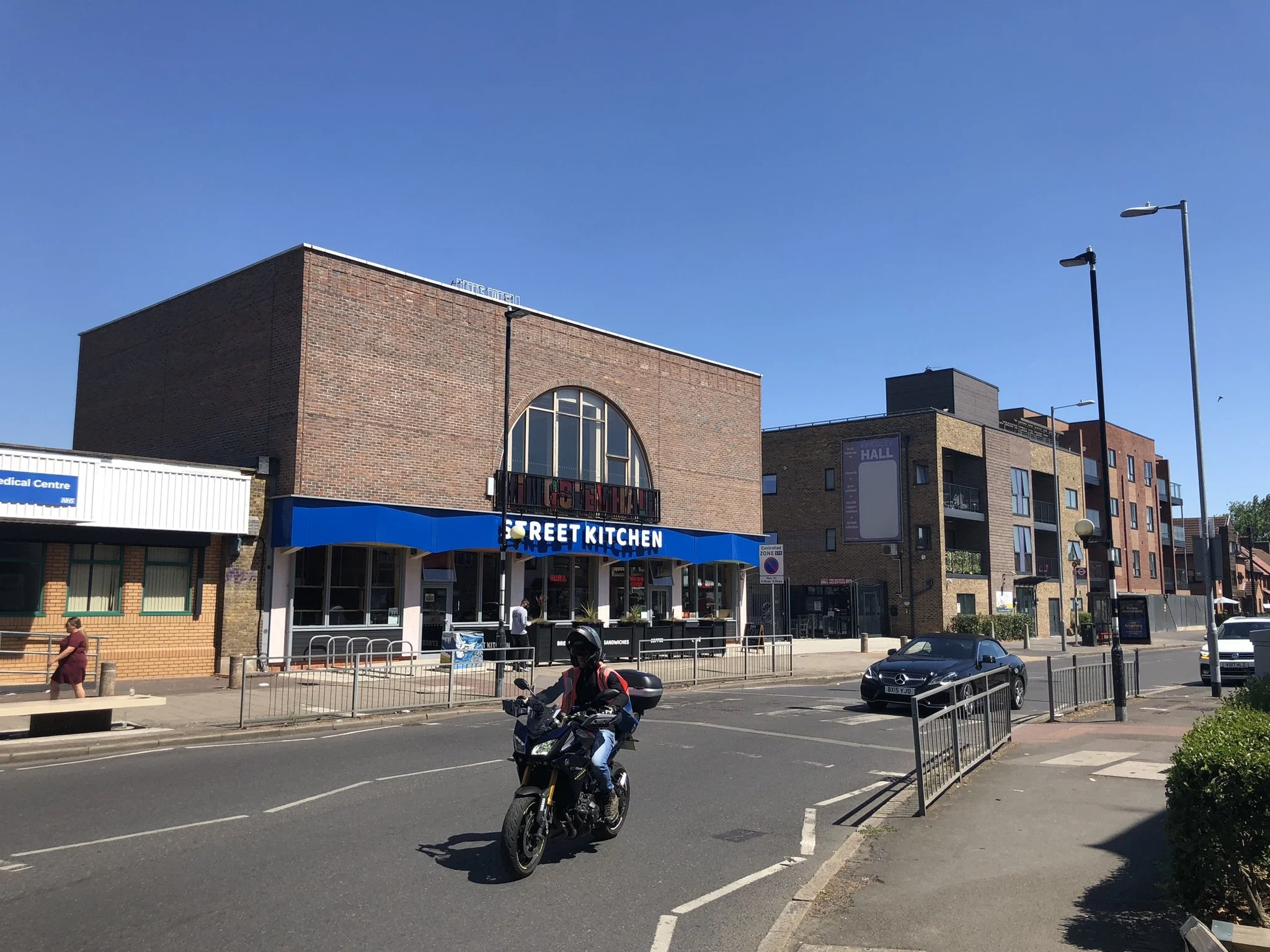Kingsley Hall, Dagenham
The Story in Depth
In 2013 Kingsley Hall Church and Community Centre (KHCCC) was in need of physical and missional renewal. It is now an integrated hub with housing, community provision, and a worship space. How did this transformation happen?
-
Starting point
In 1929 the Lester sisters planted a church in the middle of the Becontree Housing Estate and led pioneering work in nursery care, social provision, and a youth exchange programme. By the twenty-first century, the land was owned by Livability, a Christian disability and community engagement charity, but Kingsley Hall was deteriorating and looked uninviting. Consequently, a new director, Chris Kapnisis, was appointed in 2014 to help restructure the church and charity, starting with offering their facilities as a generous place of welcome.
-
The plan
Chris set out a community-led vision for the site as a hub for wellbeing, having met and agreed to collaborate with the Christian developer Alastair Watson.
The first phase of redevelopment in 2018 extended the day nursery and completed four keyworker flats, now owned by KHCCC. The next phase was to rebuild the combined church and community centre, and the third was to build affordable housing.
Alastair Watson worked on a financial model which would provide affordable housing on part of the site and deliver financial cross-subsidy to rebuild Kingsley Hall’s church and community centre – which would also require substantial fundraising from other sources.
-
The journey
In July 2021, a partnership of Alastair Watson, KHCCC and Livability sought planning permission to demolish the buildings on the eastern side of the site and redevelop it to provide 36 residential homes.
The planning application incorporated a viability assessment approach whereby all of the housing was consented as market housing, which subsequently enabled the Registered Provider purchasing the 36 homes (Shian Housing Association) to amend the tenure to obtain a grant on all 36 flats. This model approach was employed to get around the restriction in GLA funding rules whereby they would only provide grant for the non-section 106 (65%) social rent houses on a site delivered through planning,
The whole planning process was completed in 14 months, and the building for the community centre, cafe and church was completed and opened in 2023. The 36 affordable homes were delivered in 2025, with rent set at London Borough of Barking and Dagenham (LBBD)’s Affordable Rent level.
The accommodation is managed by Shian via a nomination agreement with the local authority and the first tenants have moved in. Shian and Kingsley Hall are intent on working together to meet the wider needs of the tenants.
-
Resources
The project raised grants and loans for different stages of redevelopment. The funding for rebuilding the church and community centre came from various sources:
- £300,000 CIL grant from LBBD
- £1,300,000 cross-subsidy from that part of the site where the social housing would be built
- £500,000 from the National Lottery
- £550,000 in other grants from national trusts
- £650,000 from disposal of off-site assets
- £120,000 in gifts from church members and the local community
- £630,000 from the Department of Education (for the nursery school)
The keyworker housing and church and community centre were funded through loan finance (including £750,000 from the Charity Bank) and £1,500,000 grant funding from the GLA.
-
Keys to success and biggest challenges
The project came to fruition thanks to ambitious, imaginative, risk-taking, and entrepreneurial church leadership from Chris Kapnisis. Alastair Watson came into the project with a Christian ethos, and due to his belief in KHCCC’s vision, was willing to absorb costs and keep to the agreed land payment despite covid-related delays and rapidly rising building costs; the final development profit was far less than originally projected.
The partnership with the local authority and the strategy for raising the land value (from providing truly affordable housing), along with the significant grants raised by the church, made it possible to use the site for affordable housing and community facilities. As a non-denominational local church and charity, Kingsley Hall was able to make decisions directly without having to negotiate denominational hierarchies. The success of the project was ‘a clear sign of God’s enabling and favour’, Chris felt; ‘Without miracles none of this would have happened.’
-
Final outcomes
The Kingsley Hall redevelopment has provided 36 affordable homes, a haven for the community, and holistic provision for the needs of local people – all as expressions of Christian mission. The nursery school has expanded, and a range of churches are able to meet and worship on the site. The subsidised Street Kitchen café acts as the welcoming heart of the community centre, with the worship space above.
One of the new social housing residents said she was very excited about her new home, and had already been to the community shop and café, as well as a prayer session. She expressed that she would be part of the church going forwards – more than that, she felt like she was part of something, and KHCCC would be not only her home but her community and her family too.
For further information on KHCCC and the people involved, contact The Church Land Trust on theclt2021@gmail.com.
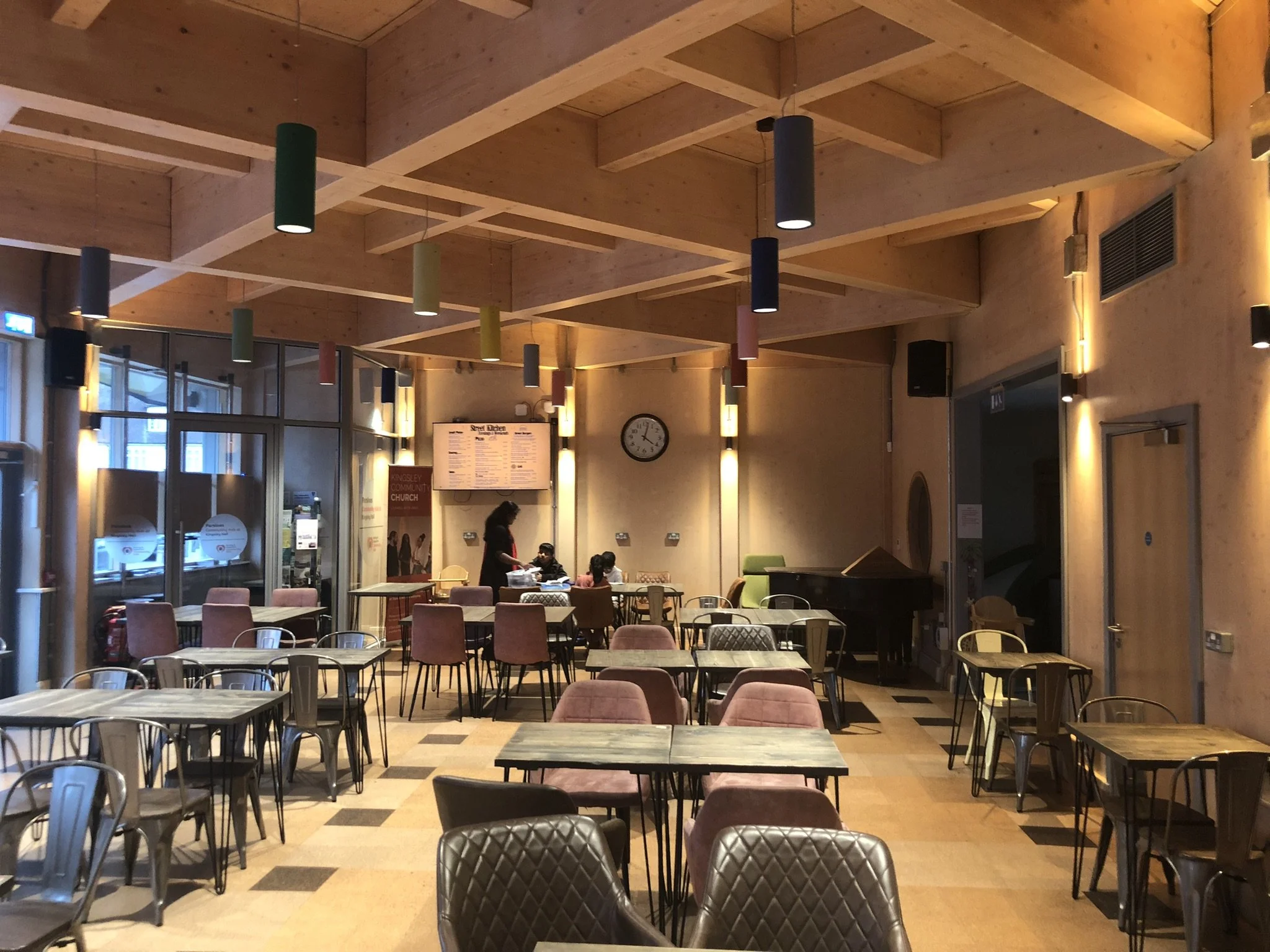
The interior of the Street Kitchen
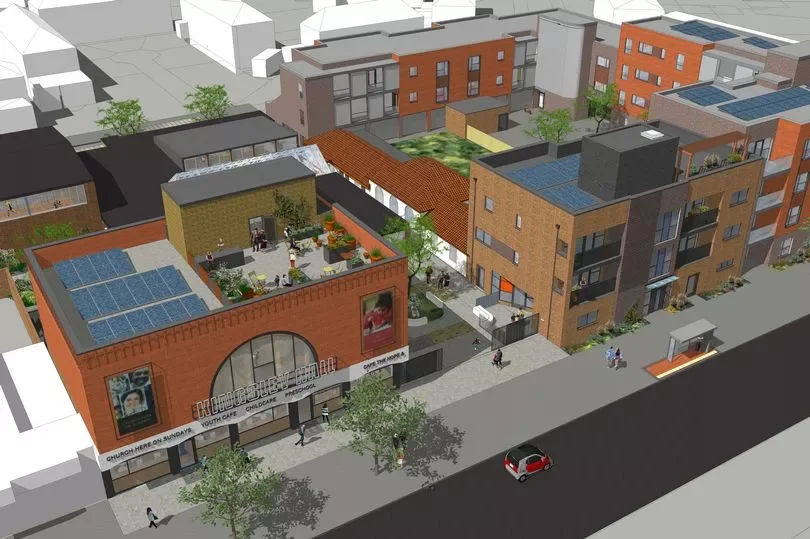
Architect's 3D drawings for the site (Phases 1-3)
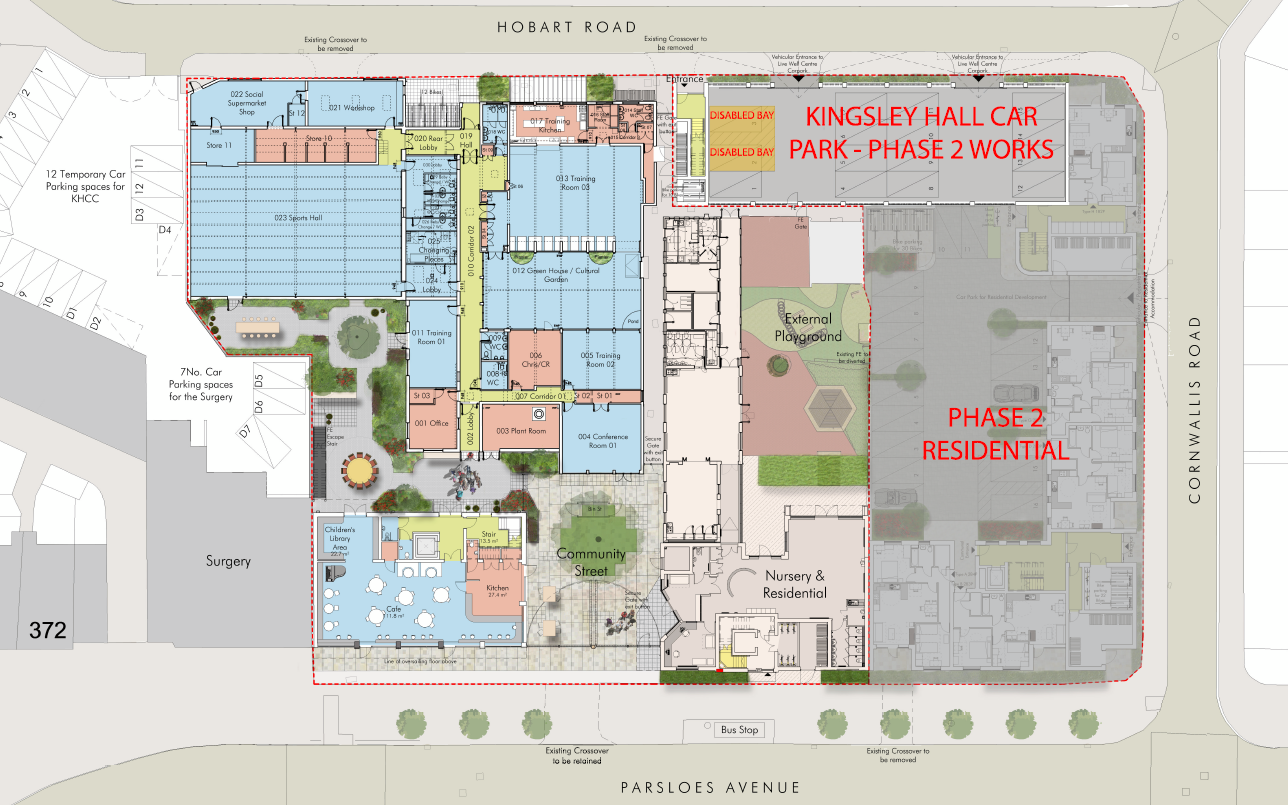
The phasing plan for the site
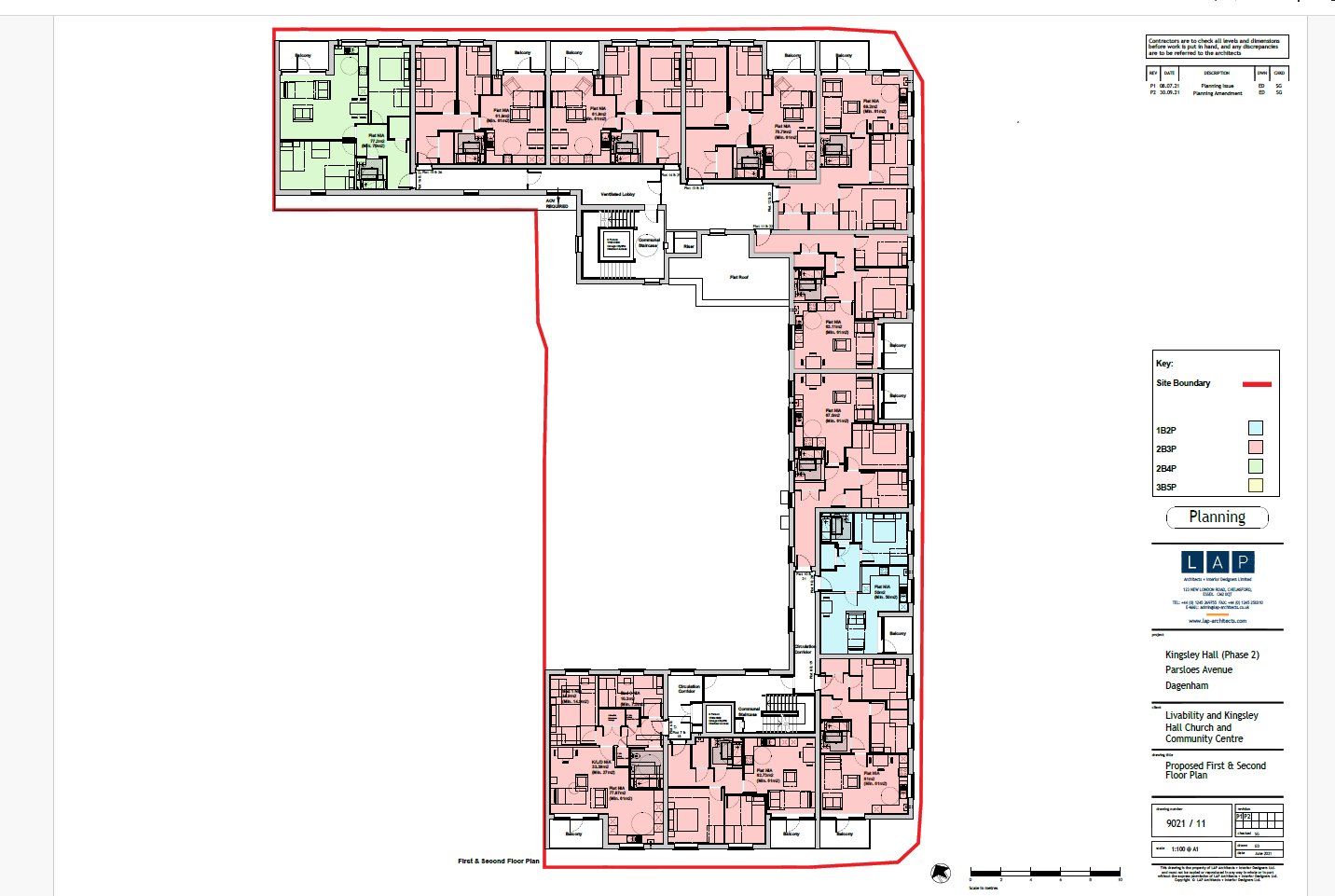
Architect's plan of the 1st floor flats

The shared community space, with the church above

Keyworker flats
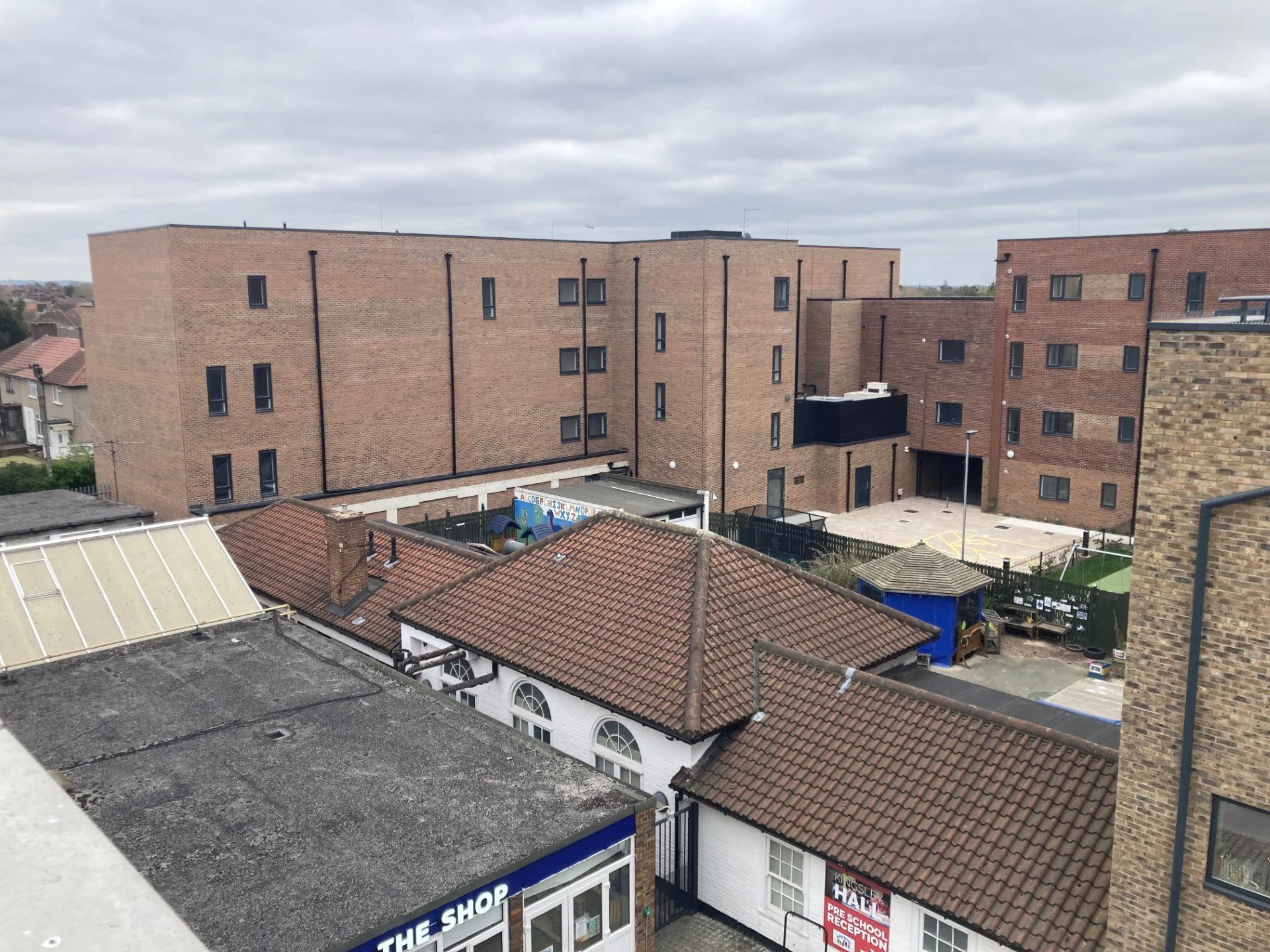
Affordable rent flats, with the nursery and church rooms in the foreground
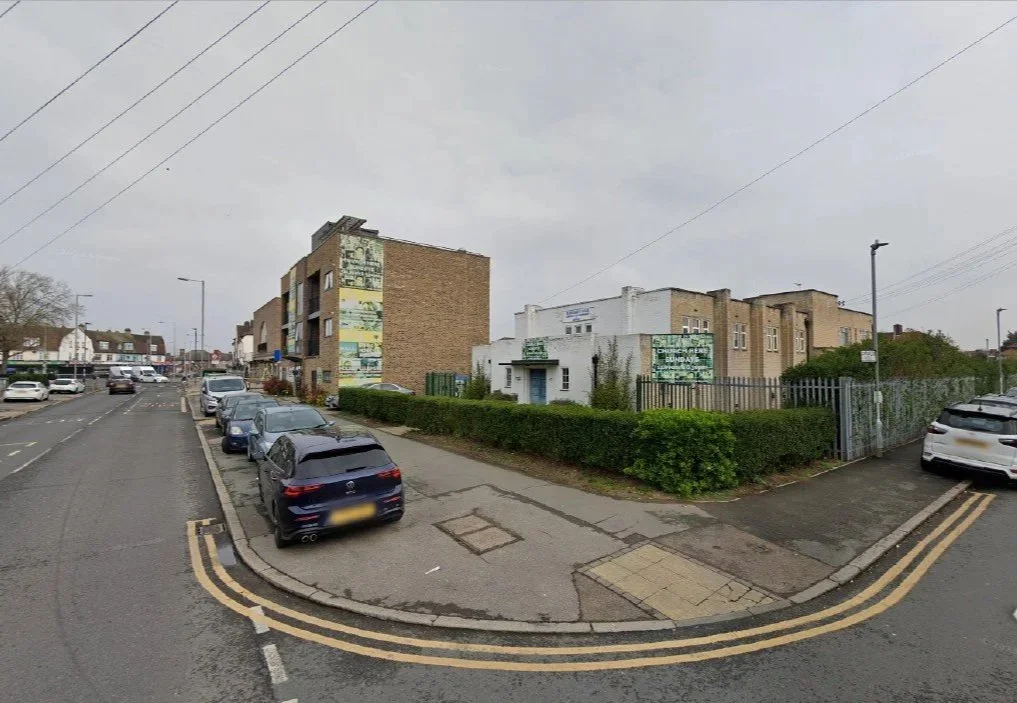
The housing section of the site prior to development
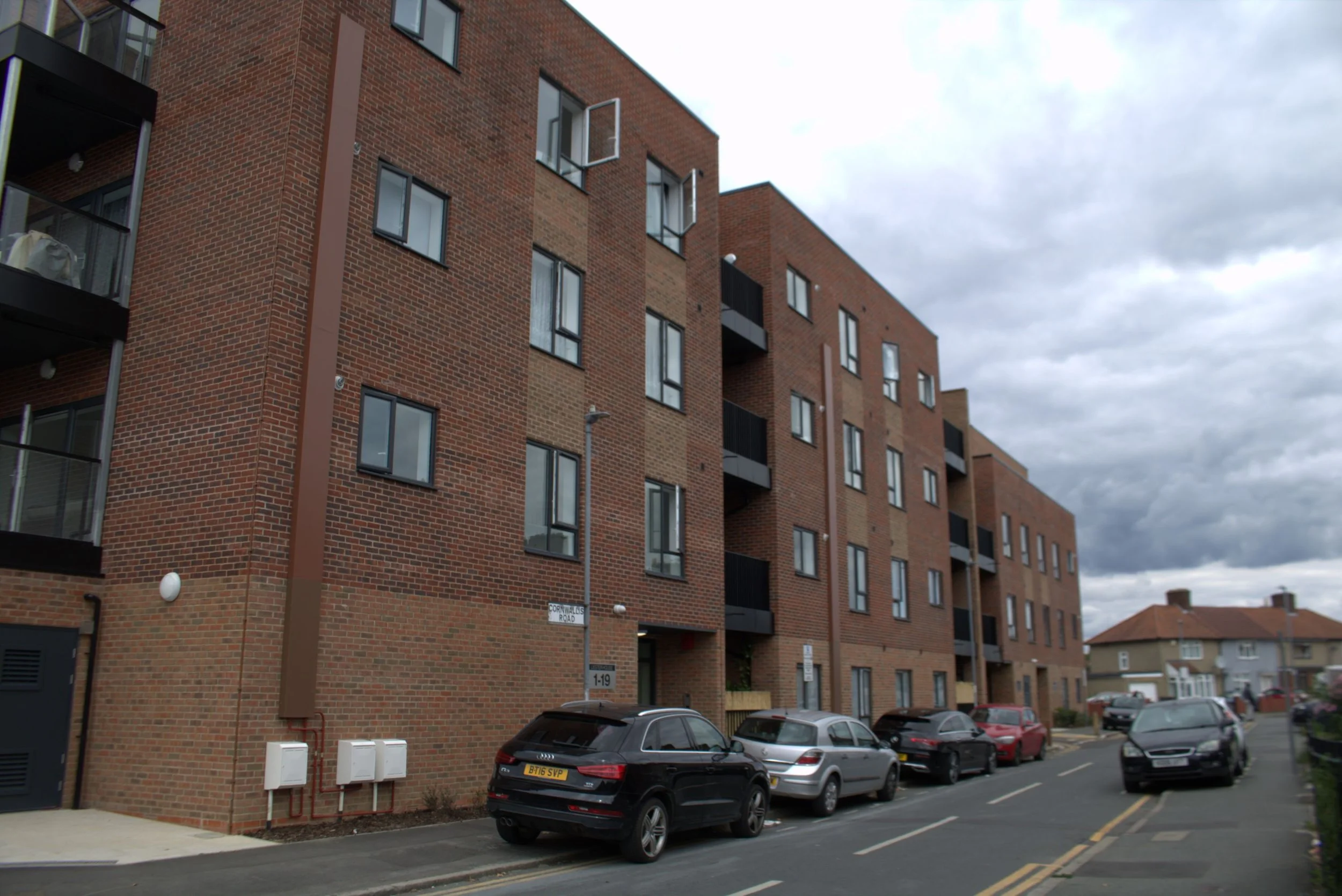
Affordable flats post-completion
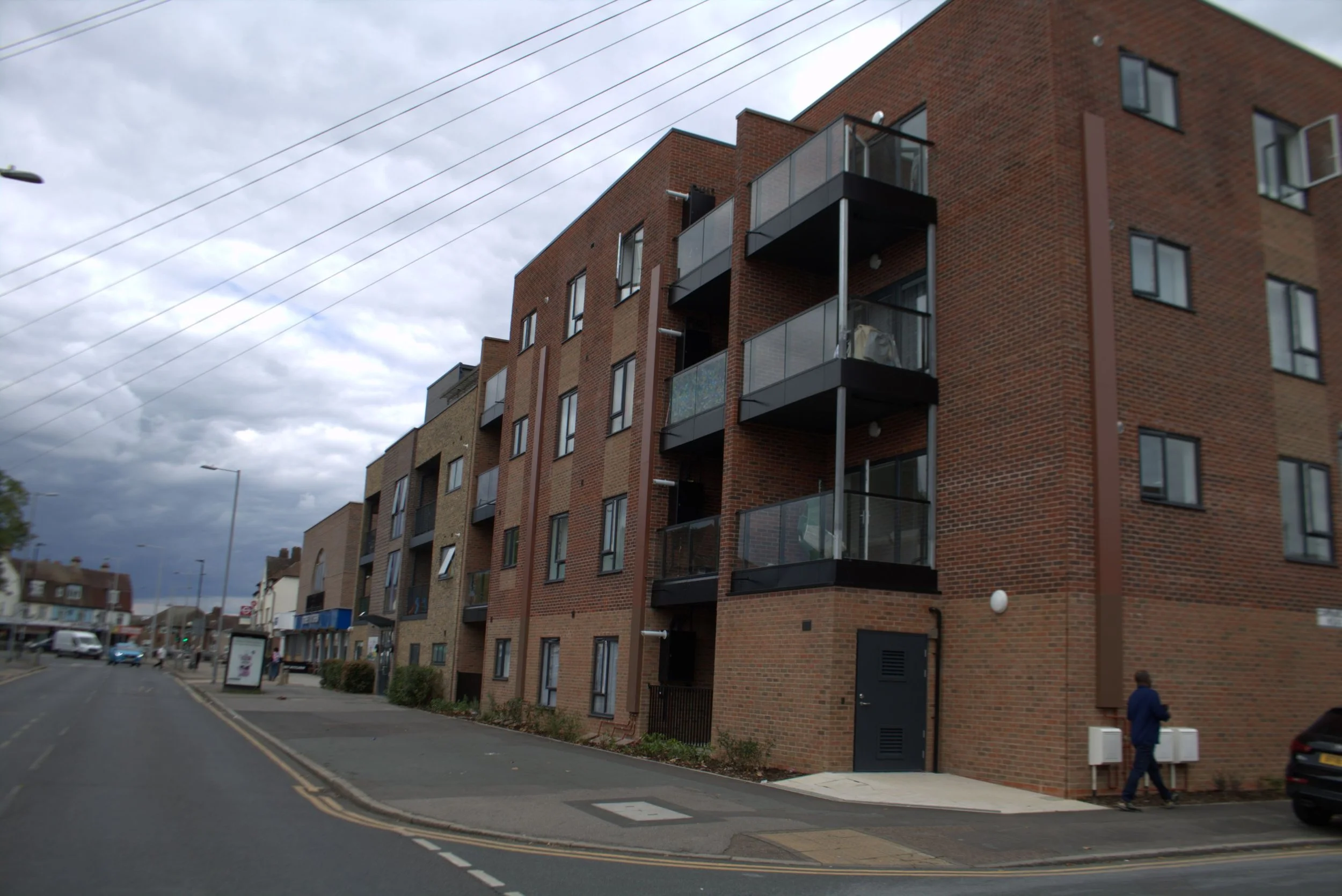
Affordable flats newly occupied
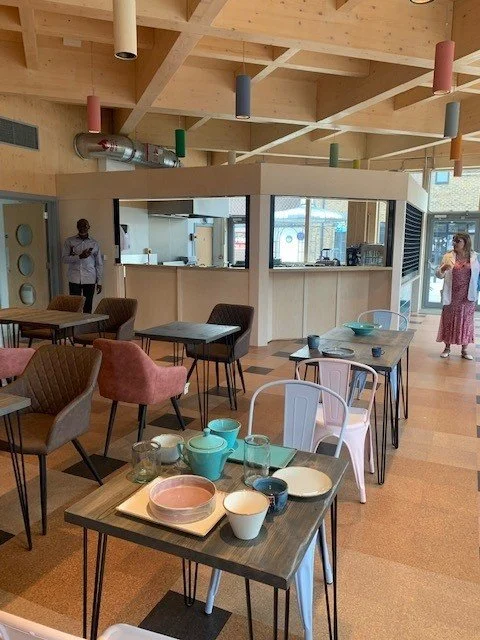
Cafe area

The quote from Mahatma Gandhi when he visited Kingsley Hall in 1929


